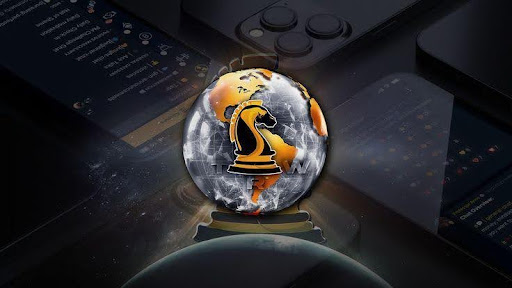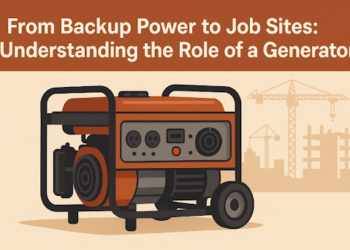Financial liberty has long been a dream for many. For most people, it feels out of reach. Conventional education teaches us how to work, save, and plan for retirement. However, it rarely equips us with skills for real independence. For those unwilling to spend decades grinding, platforms like The Real World are strong alternatives. They offer a path from financial entrapment to entrepreneurial proficiency.
This article examines how The Real World challenges conventional systems, the blueprint it offers for financial flexibility, and why it resonates with digital entrepreneurs worldwide.
The Matrix: A Metaphor for Modern Confinement
Andrew Tate, the creator of The Real World, frequently describes the “Matrix” as a metaphor for the systems that keep individuals reliant: education, corporate tasks, and consumer-driven culture. While these organizations guarantee security, they frequently restrict personal liberty. The Matrix conditions individuals to follow the same script —get a degree, find steady work, pay bills, and hope to enjoy life later on.
For many, this design no longer works. Incomes struggle to keep pace with inflation, job security is uncertain, and young generations crave versatility over rigid schedules. The Matrix provides survival, however, not freedom.
The Real World provides itself as an exit. Rather than telling people to wait till retirement to live fully, it equips them with methods and abilities to take control now.
Proficiency as the Alternative
Leaving the Matrix doesn’t occur overnight– it requires proficiency. In this context, mastery suggests more than simply monetary success; it implies acquiring the skills, mindset, and autonomy to direct one’s life.
The Real World teaches mastery in 3 essential areas:
- High-Value Skills: Learning abilities that can right away produce income, such as freelancing, copywriting, and e-commerce.
- Entrepreneurial Mindset: Developing resilience, discipline, and the ability to see chances where others see constraints.
- Financial Strategy: Understanding money management and investments. Discover modern wealth-building tools, including cryptocurrency and AI-driven platforms.
This focus on mastery ensures that trainees are not simply switching from one system to another —they are developing a structure for long-term independence.
The Real World Blueprint
The Real World operates as a digital academy with a clear blueprint for achieving financial freedom. Its framework can be broken down into four pillars:
1. Skill Acquisition
The beginning point is acquiring useful skills that can generate income quickly. Courses concentrate on areas like:
Copywriting: Writing persuasive sales copy for companies.
E-Commerce: Running dropshipping models and online shops.
Freelancing: Offering services internationally through digital platforms.
Marketing: Learning how to scale brand names and reach customers online.
Crypto & Investing: Navigating digital financing responsibly.
2. Application & Monetization
The platform highlights immediate application. Trainees are encouraged to launch businesses, find clients, or test products as they learn, making the process experiential rather than merely academic.
3. Mentorship & Community
Members gain access to accomplished coaches. This guidance helps students avoid errors and develop faster. The community becomes a support network where peers collaborate and motivate each other.
4. Scaling & Independence
When students see results, the focus shifts to scaling —building systems, utilizing automation, and reinvesting earnings. The objective is not simply to earn money, but to produce sustainable, independent income streams.
Why The Real World Resonates
Numerous online courses and free resources are available. Why does The Real World stand out? The answer is curation, timing, and community.
Timing: In today’s uncertain economy, people yearn for options to unsteady tasks. The Real World provides a roadmap at the ideal moment.
Curation: Free content online is scattered and inconsistent. The Real World organizes knowledge into clear, actionable steps.
Community: Peer groups and mentors make the journey less isolating. This increases responsibility and success rates.
For digital hustlers, this combination appears to be the missing link between aspiration and outcomes.
The Psychology of Financial Freedom
Financial freedom is not just about income —it’s also about mindset. Many individuals feel trapped not only by low-paying jobs but also by limiting beliefs about money and success.
The Real World encourages students to adopt a brand-new mental framework:
- Abundance Over Scarcity— Believing there are endless opportunities online.
- Ownership Over Dependence— Relying on individual skills instead of employers.
- Action Over Hesitation— Prioritizing execution over limitless planning.
This mindset shift is one of the most transformative parts of the journey. Skills might create income, but the right mindset sustains independence.
Success Stories and Real-World Impact
Testimonials from The Real World emphasize how its plan has actually changed lives:
- Trainees who changed from 9-to-5 wages to freelancing professions.
- Young business owners operating online stores that generate worldwide revenue.
- People who, after mastering copywriting, landed high-paying agreements.
Outcomes differ, but a pattern emerges: consistently applying lessons speeds financial progress compared to standard paths.
The Counterpoints and criticisms
The Real World, like any disruptive platform, has its critics. Some argue that Andrew Tate’s controversial public image overshadows the platform’s instructional value. Others recommend that many of the details can be found online for free.
Advocates counter with 2 points:
Execution Is the Differentiator— While complementary knowledge exists, few individuals act upon it. The Real World supplies structure and accountability, increasing the likelihood of outcomes.
Mentorship Has No Free Substitute —Direct access to specialists who are actively making an impact in their fields is something that scattered online resources cannot supply.
These factors make the platform more than simply a knowledge bank– it becomes a plan for those majoring in leaving the Matrix.
A Broader Cultural Shift
The Real World is not just an online school. It reflects a broader cultural shift. Younger generations distrust traditional systems. They want more than stable jobs; they want flexibility, autonomy, and purpose.
Platforms like The Real World resonate because they align with this cultural moment. They verify the belief that independence is possible, even in an economy filled with uncertainty.
Conclusion: From Matrix to Mastery
Financial freedom is no longer reserved for the wealthy or the lucky– it is an ability that can be learned, applied, and scaled. The Real World employs a plan that combines abilities, mentorship, and mindset, empowering individuals to take control of their futures.
Getting away from the Matrix is not about turning down difficult work; it’s about rerouting effort into structuring something independent and sustainable. Mastery is the next phase– a life where skills translate into autonomy, and autonomy translates into liberty.
For the digital hustler ready to step off the treadmill of conformity, The Real World provides more than just courses. It uses a course from Matrix to mastery —a roadmap to financial self-reliance in the age of digital opportunity.
Financial freedom has long been a dream for many, yet for many individuals, it feels out of reach. For those unwilling to settle for years of grinding, platforms like The Real World have emerged as strong options– offering a path from monetary entrapment to entrepreneurial mastery.
Andrew Tate, the founder of The Real World, typically refers to the “Matrix” as a metaphor for the systems that keep people dependent, such as schooling, business tasks, and consumer-driven culture. The Real World, like any disruptive platform, has its critics. The Real World is not simply an online school; it shows a broader cultural shift.







